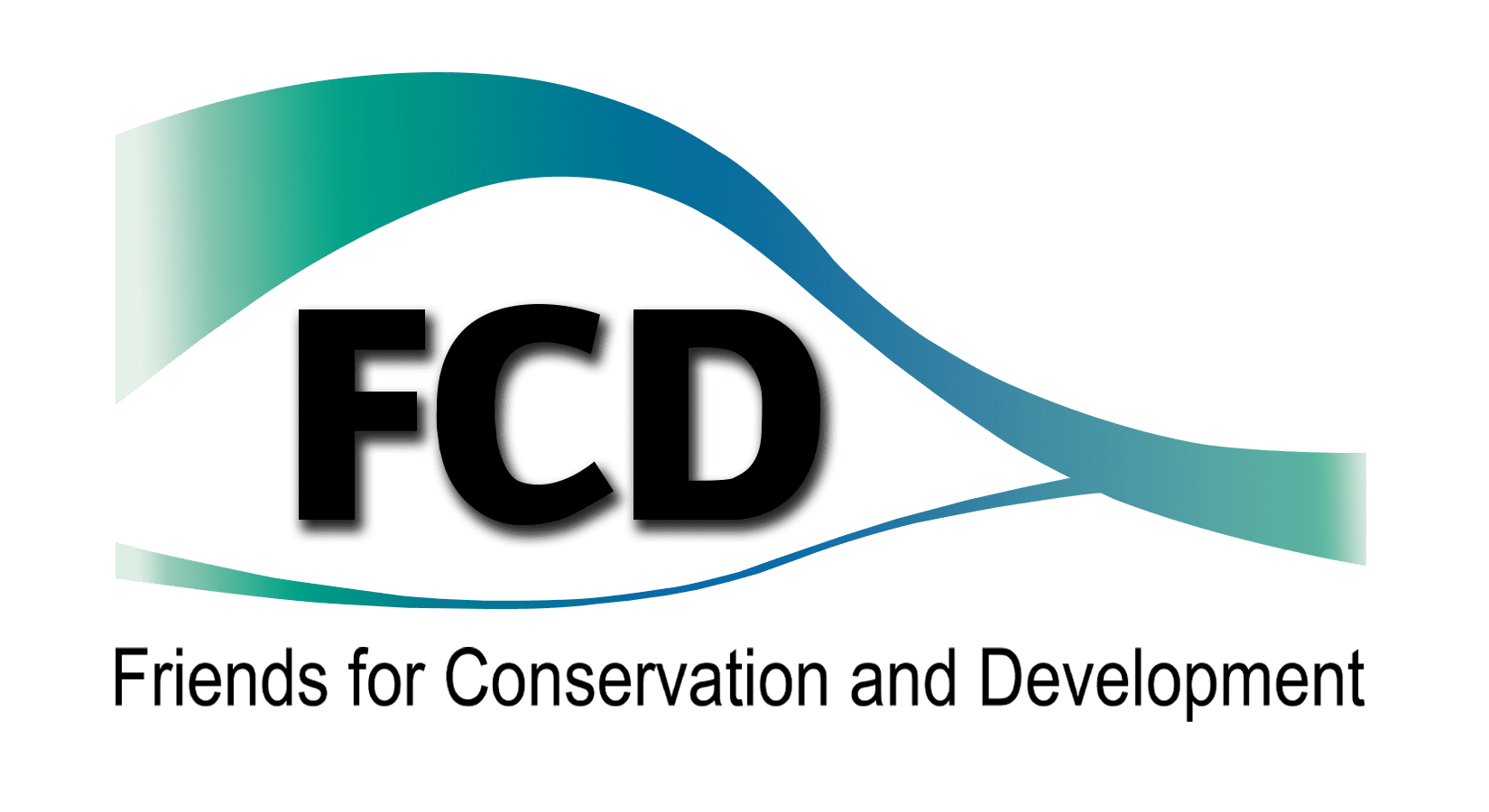EFFECTS OF POACHING ONGAME SPECIES COMMUNITIESIN THE CHIQUIBUL FORESTSTUDY NO. 2
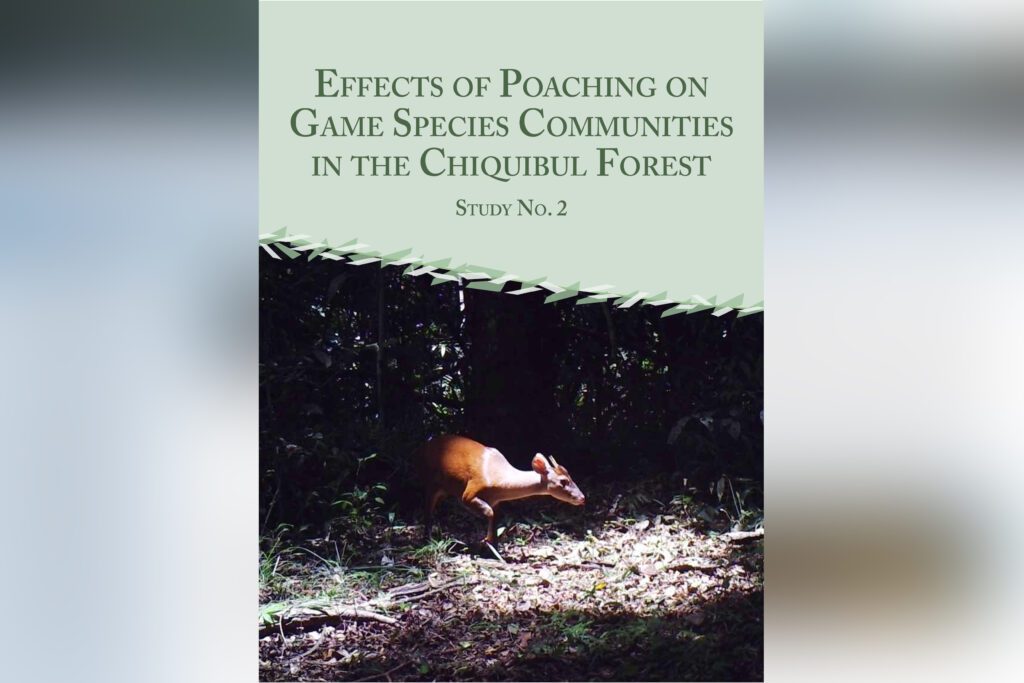

INTRODUCTION Unsustainable hunting of terrestrial vertebrates, is a widespread phenomenon in tropical forests (Peres 2000). This most widespread form of non-timber forest product resource extraction (Peres, 2001) can be detrimental to target populations (Mittermeier, 1987). Mittermeier (1987) even suggests that hunting can be more detrimental than habitat destruction, as it may lead from local to […]
FCD Newsletter Issue #23
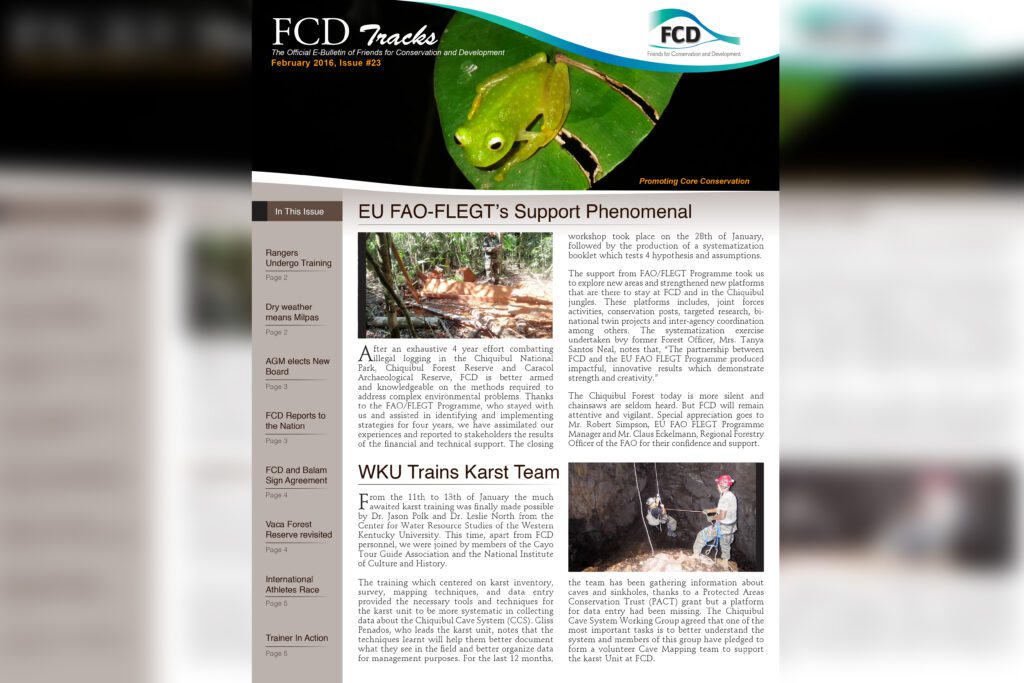

EU FAO-FLEGT’s Support Phenomenal After an exhaustive 4 year effort combatting illegal logging in the Chiquibul National Park, Chiquibul Forest Reserve and Caracol Archaeological Reserve, FCD is better armed and knowledgeable on the methods required to address complex environmental problems. Thanks to the FAO/FLEGT Programme, who stayed with us and assisted in identifying and implementing […]
FCD Annual Report 2015
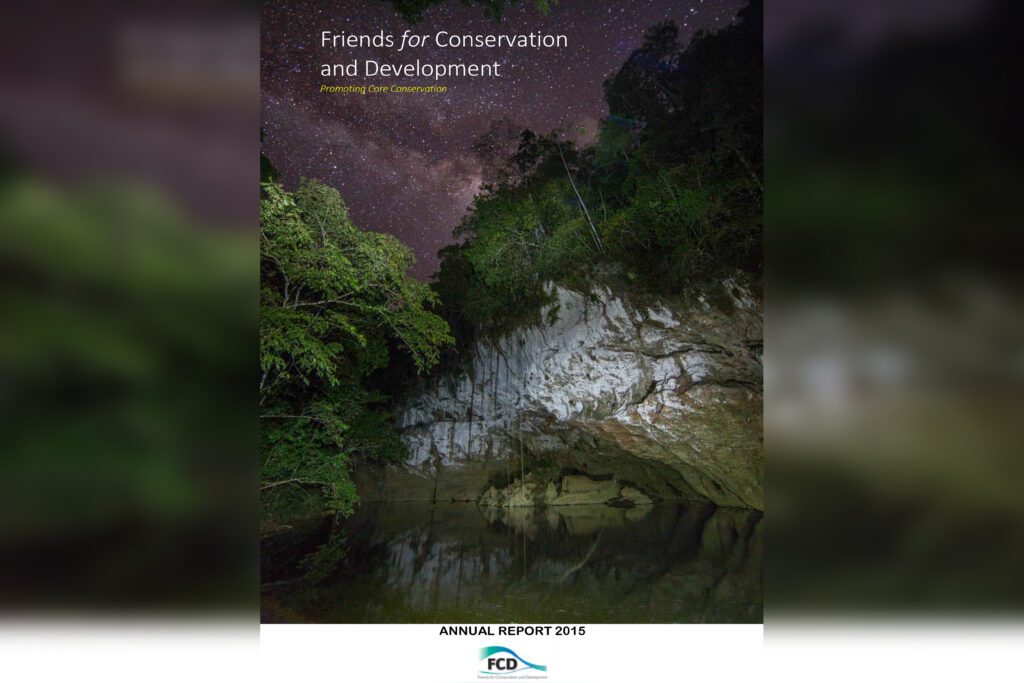

MESSAGE FROM THE BOARD PRESIDENT I take great pleasure to address you as friends; friends bound by a commitment to conservation and sustainable development. This year as we engaged in the process of strategic planning it became clear that FCD could not have a better name. As we come to the end of another very […]
FCD Newsletter Issue #22
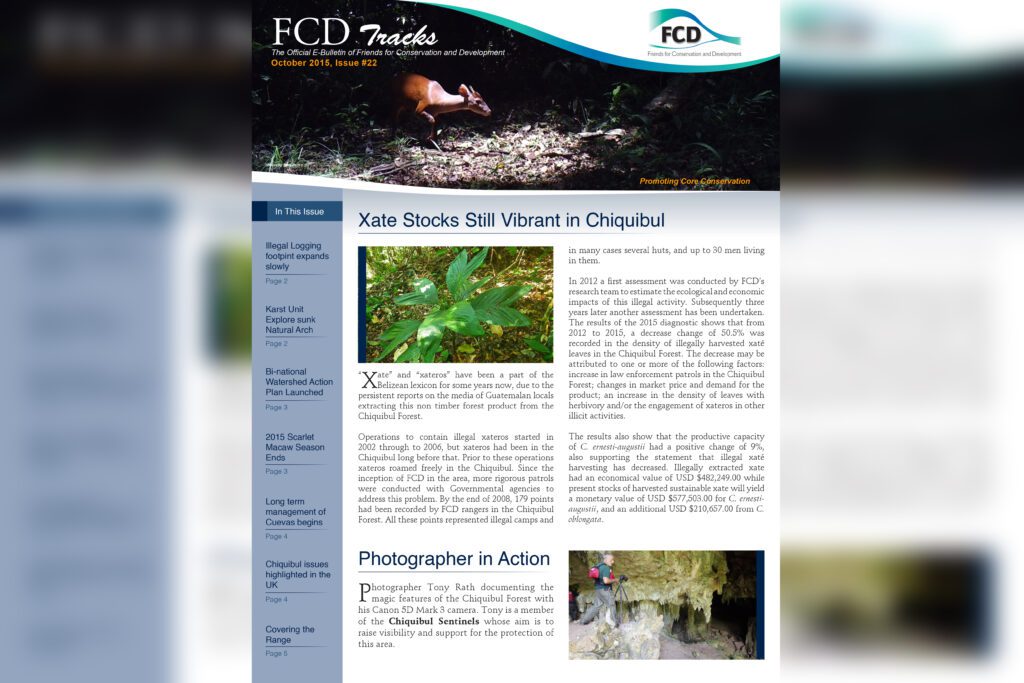

Illegal Logging Footpint Expands Slowly In the Chiquibul Forest, illegal logging was first detected in 2006. By March 2008, a joint forces patrol documented that illegal logging was escalating and a logging trail network was evident. In late 2009, aerial flights conducted by FCD observed numerous illegal logging clusters. By 2010, joint patrols reported frequent […]
NATIONAL PROTECTED AREAS SYSTEM ACT, 2015
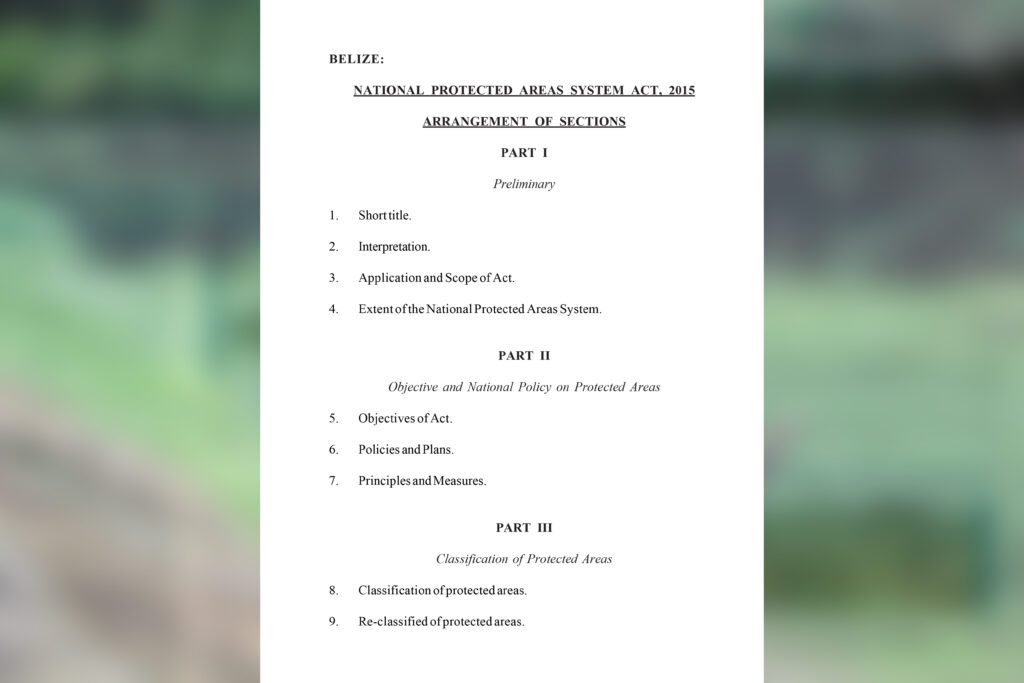

AN ACT to provide for the maintenance of coordinated management of a system of protected areas that is representative of internationally agreed categories, effectively managed, ecologically based, consistent with international law, and based on best available scientific information and the principles of sustainable development for the economic, social and environmental benefit of present and future […]
Xaté Stocksin theChiquibul Forest
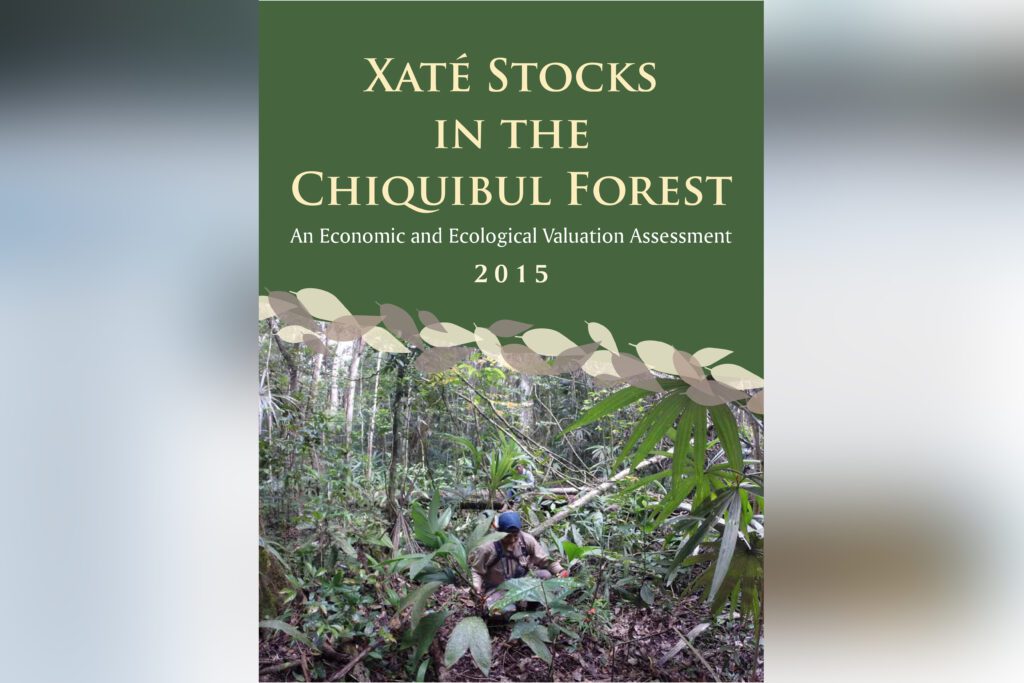

INTRODUCTION Chamaedorea is the largest palm genus in the Central American Region (Henderson et al. 1995) and according to the IUCN, an estimated 75% of the species are threatened. In Belize, there are 12 reported species of which three are the most favored in the floral industry being Chamaedorea elegans, C. ernesti augustii and C. […]
Illegal LoggingIn TheChiquibul Forest
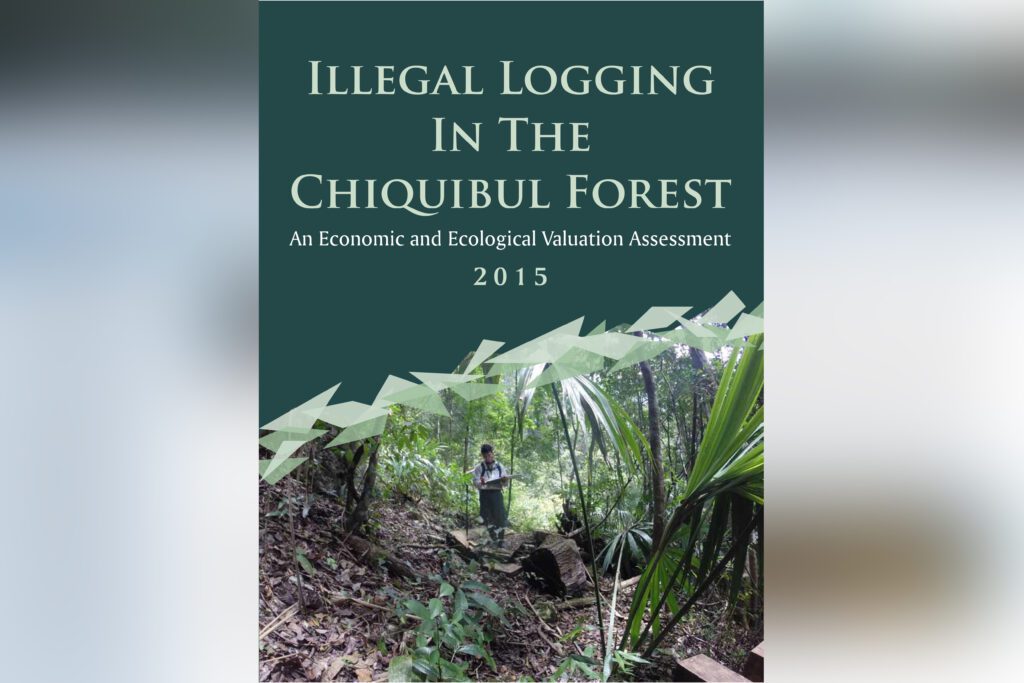

INTRODUCTION Rosander (2008), states that illegal logging is linked to corruption and organized crime; it fuels poverty and restricts access to natural resources. In addition, it has economical, social and ecological impacts (Lawson & MacFaul 2010; Li et al. 2008; Rosander 2008; Sheikh 2008; World Bank 2008). The World Bank (2006) estimates that in developing […]
FCD Newsletter Issue #21
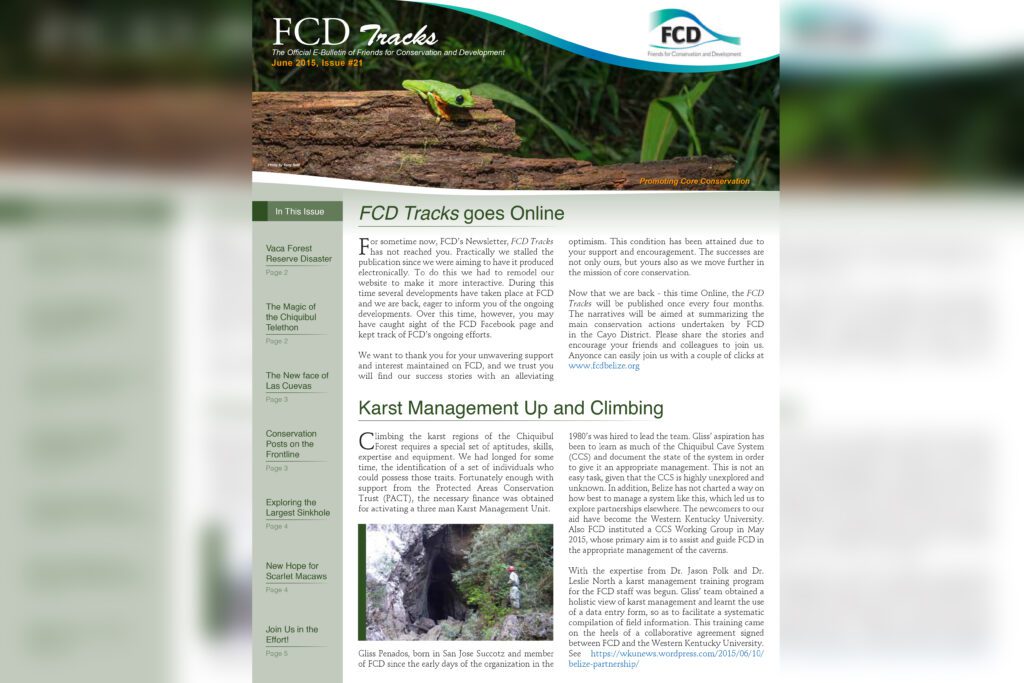

The Magic of the Chiquibul Telethon In 2013 one of our wildest dreams was to have 18 park rangers in place at FCD. The Park Manager, Derric Chan, being a vociferous leader, repeatedly made it known that to cover the range and to have a more impact oriented enforcement program it was vital to have […]
FCD Annual Report 2014
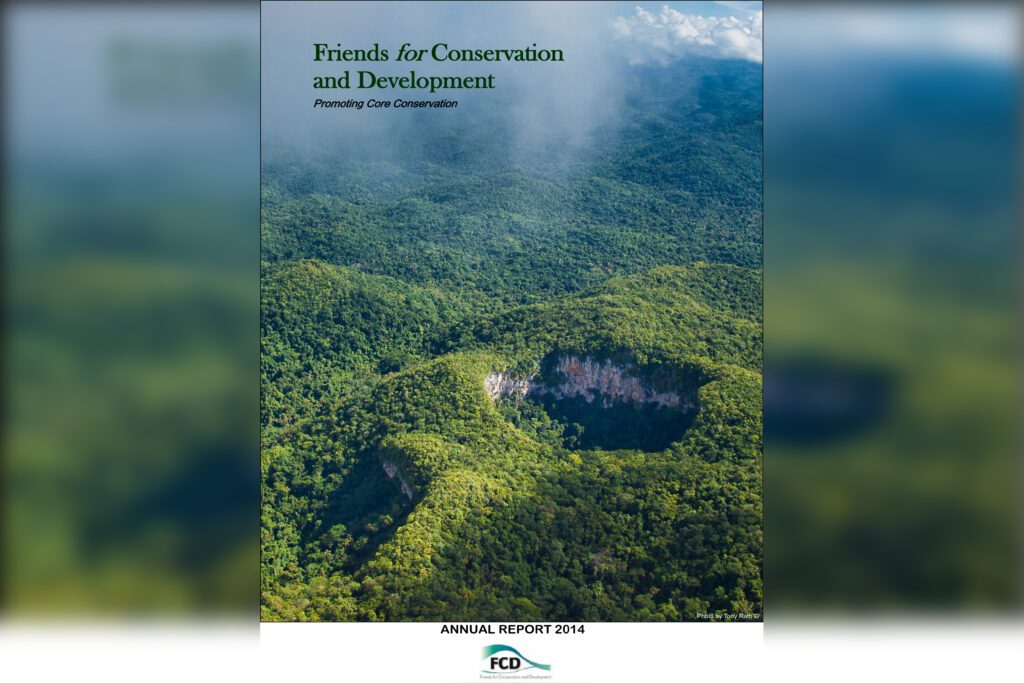

MESSAGE FROM THE EXECUTIVE DIRECTOR There are moments in history that changes the way we see and do things, and this year has been one of many challenges with a moment that have made us revisit our strategies and interventions. The fatal incident that occurred in Caracol has marked, particularly for FCD, that optimum point […]
SCARLET MACAW BIO-MONITORING PROGRAM


INTRODUCTION The Scarlet Macaw is the most widely distributed (Mexico to Brazil) of the 17 existing macaw species (Wiedenfeld 1994). Two subspecies have been identified, Ara macao cyanoptera (ranges from southern Mexico to southeast Nicaragua) and A. macao macao (ranges from extreme south of Nicaragua to Brazil and Bolivia) (Schmidt 2008). Scarlet Macaws are endangered […]
